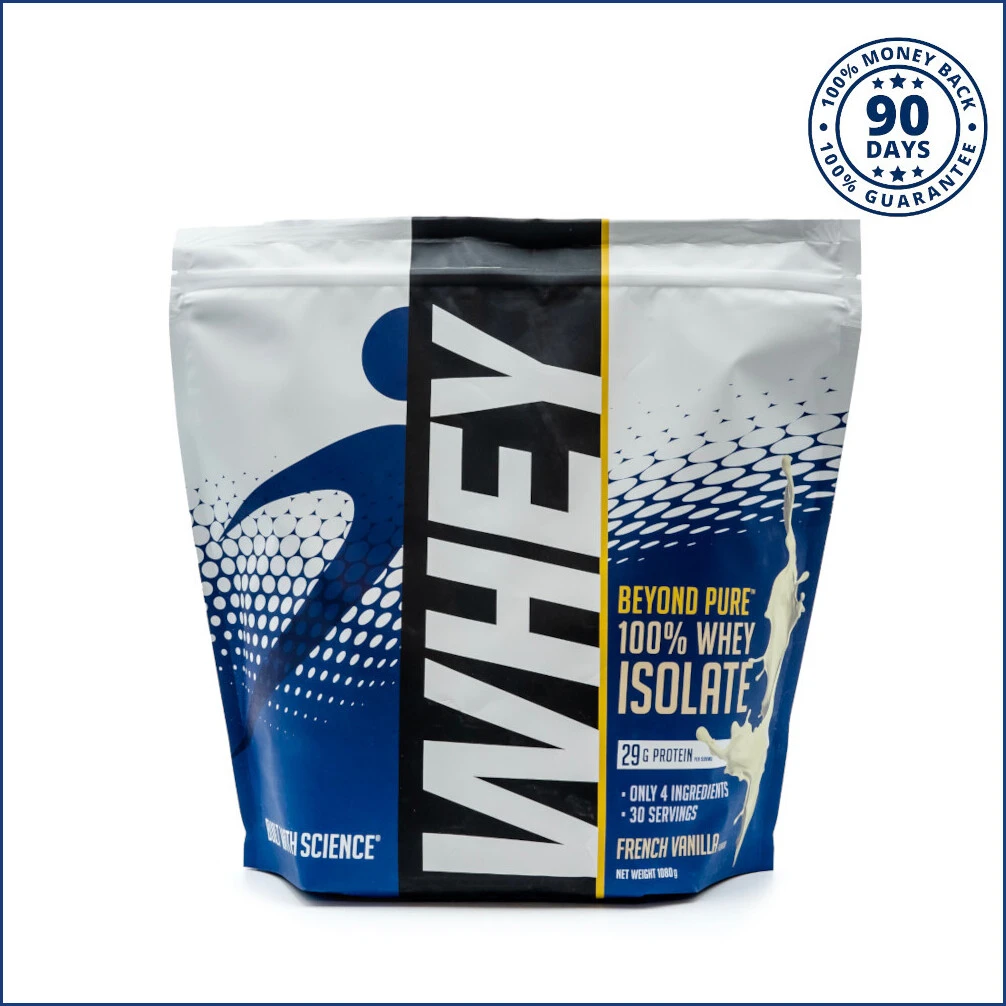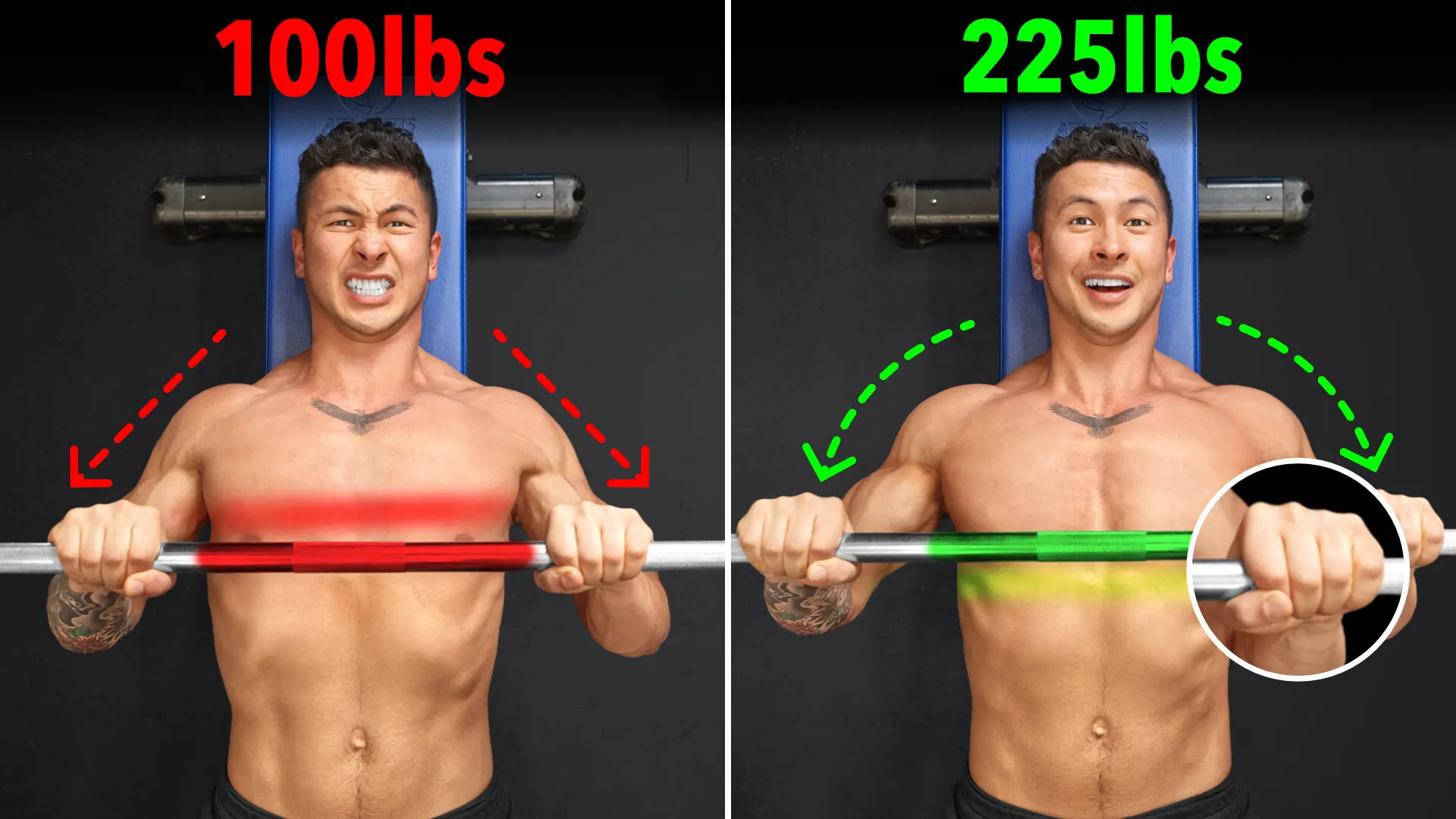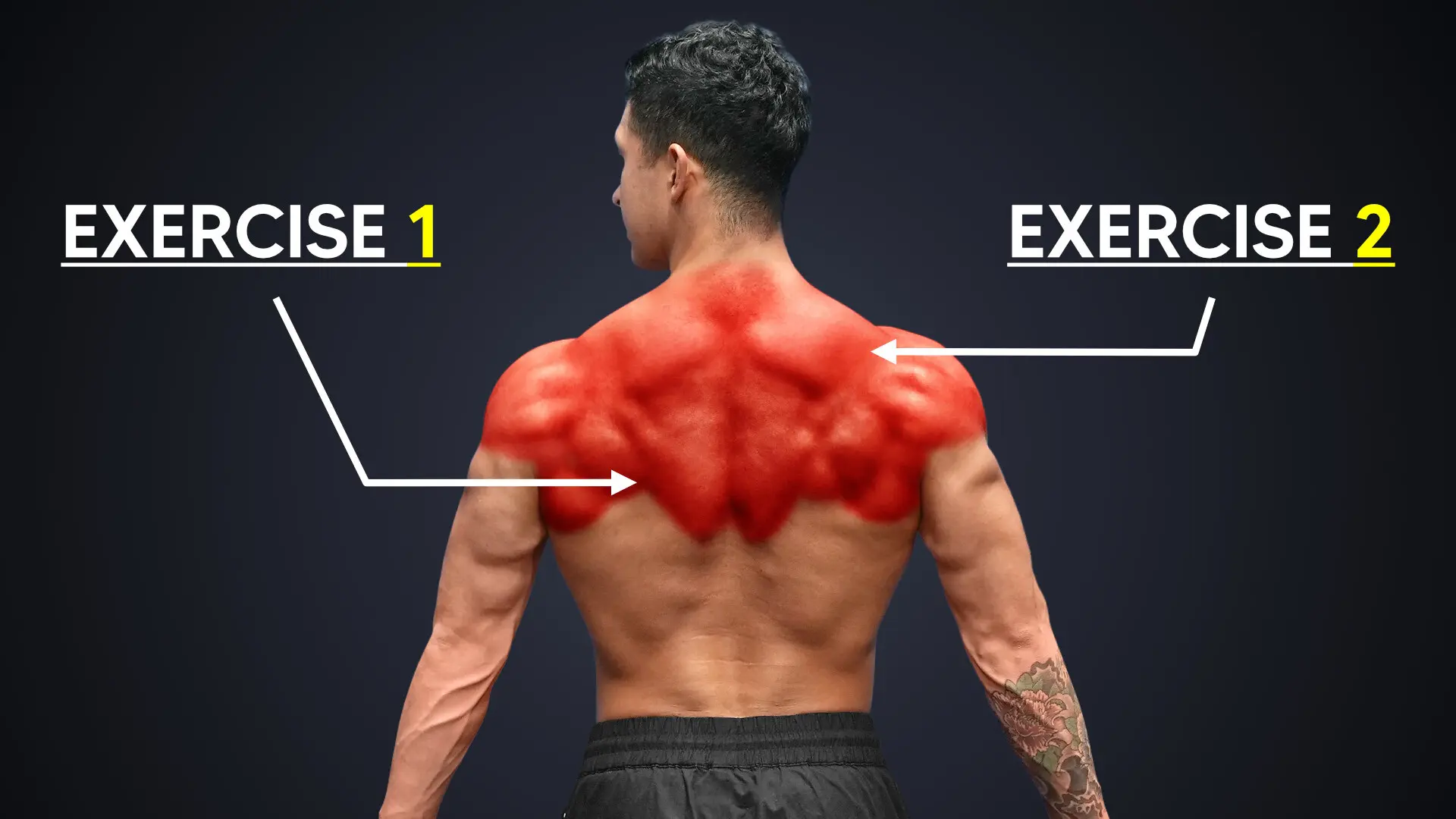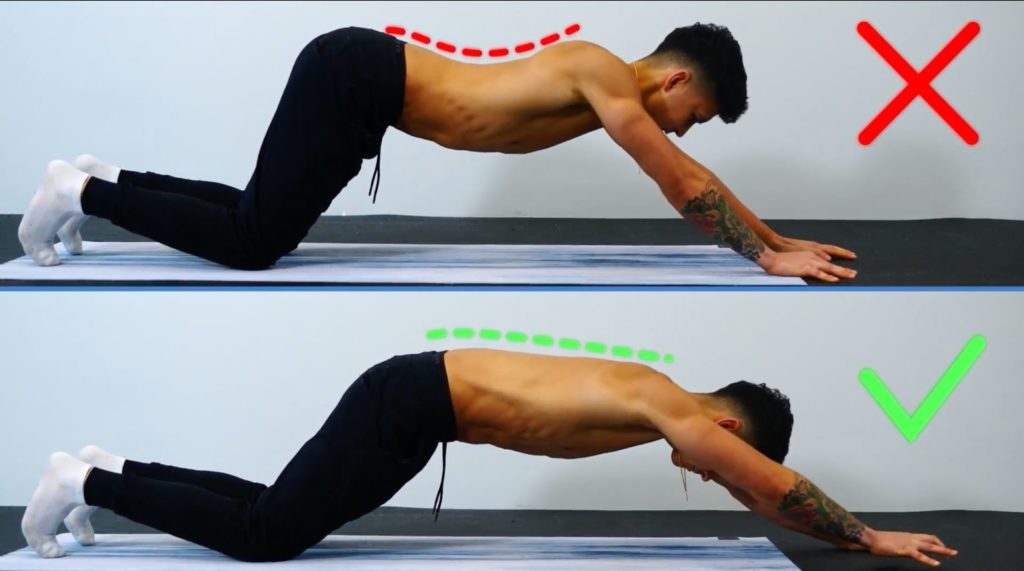
How To Get “6 Pack” Abs At Home (DO THIS WORKOUT ANYWHERE!)
You don't have to go to the gym to build six-pack abs. Here, I show you a highly effective abs workout you can do right at home - or anywhere, really, to finally get that muscle definition in your midsection.
You can sculpt a great set of abs using just your body weight and a few square feet of floor. In fact, I'll show you the best abs workout you can do right at home in this article. Here's what I'll be covering:
- Why most body weight abs workouts are a waste of time (they can do more harm than good!)
- The 4 exercises we'll use to hit every area of your six-pack
- How to perform the abs workout for the best results at home - or anywhere of your choice
By the end of this article, you'll have a full, downloadable workout you can use anywhere to build a great set of abs.
Looking to learn how you can target each of your muscle groups appropriately (and effectively) – in addition to the abs? No worries. I’ve got you. I’ve designed every program of mine, no matter if it's home- or gym-based, to be an all-in-one, science-based process that’ll get you to your dream physique FAST:
Click the button below to take my analysis quiz to discover the best program for you:
↓
What Makes Our At Home Abs Workout Better Than Others?
So, there are 3 things we'll do differently with our abs workout. These "differentiators" will make it far more effective than most bodyweight abs workouts out there.
#1: Balanced abs development
Here's the truth. To build a great, balanced-looking mid-section, your at-home abs workout will need to hit all 4 regions of the abs. A 2010 study on tennis players helps explain the potential dangers of failing to do this.
The researchers analyzed the muscle development of the players' abs and found major imbalances. In fact, the researchers found a 35% difference in size when comparing between the left and right sides of the players' abs! There were differences seen in the growth of the upper and lower sections of their abs as well.
Obviously, this disproportionate growth is attributed to the fact that tennis players work predominantly on one side. But this also helps illustrate the fact that the same can occur from an ab routine that favors certain regions and movements over others.
These disproportions are bad for 2 reasons. The first is that they can affect the look of your midsection. And the second (plus, arguably more important) is that these imbalances can greatly affect your performance and risk of injury.
#2: Progressive overload
The abs are just like any other muscle. That means you can build them up to be more visible. However, "at-home" bodyweight abs workouts fail to make their exercises more difficult over time to continuously stimulate growth in your abs as they get stronger.
#3: Exercise selection
How many times have you done an abs exercise - yet felt it more in your hip flexors or lower back instead? This comes down to poor abs exercise selection. Many abs exercises are just poor choices. And, thus, should be avoided for this reason.
Best Bodyweight Abs Exercises
So. Our workout is going to solve each one of those 3 common problems. I'll be structuring the information based on the exercises you can use for each specific abs region. Without further ado, let’s learn how by diving into the first abs region - and exercise.
Transverse Abdominis (TVA)
Just so you're prepared: the first exercise we'll cover will be the most demanding. It will target a region called the transverse abdominis (TVA). This is perhaps the least-talked-about ab muscle. Because it sits beneath your abs, you can't actually see this muscle. But, when well-trained, it plays an important role in creating a better-looking midsection.
And it does so by acting like a "natural corset", which pulls the abs in - and tightens the waist. It also had the added benefit of making the "sexiest muscle on a man" more prominent. You know, those 2 lines that start near the hips ... and then come down to the happy place.
To best work this muscle, we're going to re-create a no-equipment version (such that it's suitable for in-home use) of a great abs exercise commonly seen in a gym-based routine: the ab rollout. The ab rollout is great because it:
- Works your six-pack muscles extremely well AND
- Forces the TVA to contract hard to stabilize our spine as we move forward and back
Here's how you're going to perform the exercise:
- Get onto all fours with your hands under your shoulders and knees under your hips
- Move into something called "posterior pelvic tilt" by rotating your hips and contracting your abs
- Pull your belly button into your spine to fully activate your TVA
- From here, slowly walk your hands out forward
- Go only as far as you can without breaking this form and arching at your lower back - and then walk your hands back
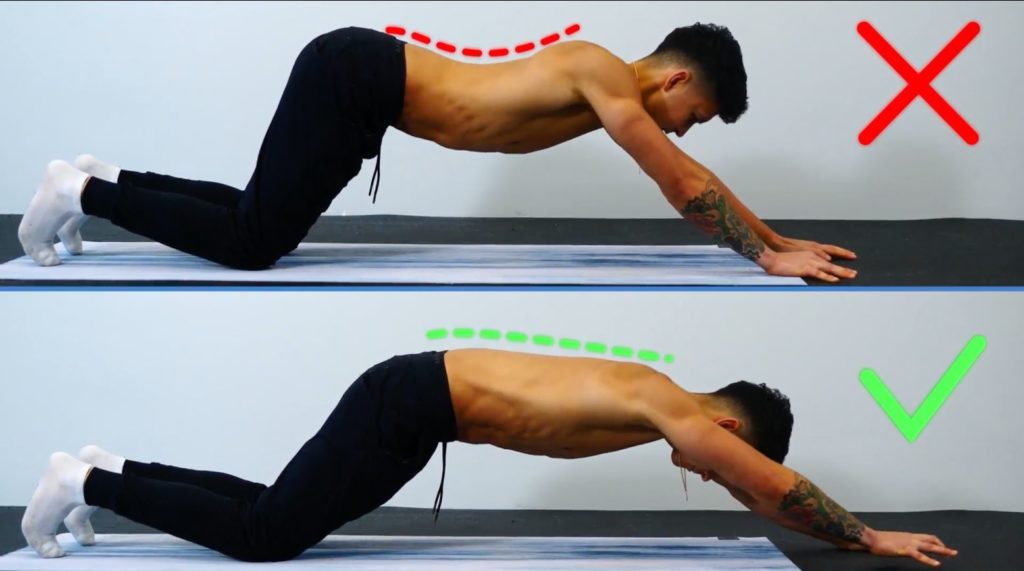
You should feel your abs working hard to stabilize your body. Progress this exercise over time by trying to get your hands further and further out. It's fine if this is just a few steps at first. You'll improve with time.
Lower Abs
Now, we'll move on to the next most demanding exercise. This helps target your lower abs. The key to effectively working the lower abs is in using what's known as a "bottom-up" exercise, where the bottom half of your body is brought up. A good example is leg raises.
That said, it's common for people to feel these "bottom-up" exercises in their hip flexors (rather than in their abs). Which is wrong. So, pay close attention to the correct form for our exercise of choice:
- Lie on your back with your arms straight by your sides - and knees bent to 90 degrees
- Initiate posterior pelvic tilt by squeezing your glutes and contracting your abs; this pre-activates your lower abs and flattens your lower back against the floor
- Curl your pelvis up towards your belly button (instead of thinking about "raising" your legs)
- On the way back down, avoid arching your lower back; make sure it remains flat against the ground when you reach the bottom
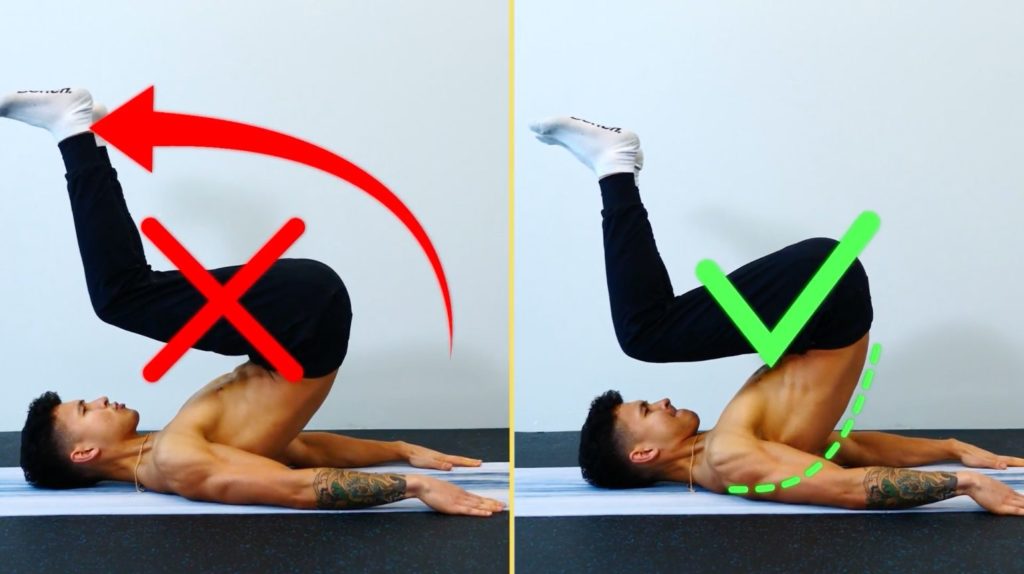
When done properly, you should feel a strong contraction in the lower region of your abs. To make this exercise easier, simply tuck your knees in towards your upper body more. As your lower abs strengthen, you can increase the difficulty level by straightening your legs more and more.
Grab Your PDF!
By the way guys ... just so you're aware, I've compiled this abs workout into a FREE PDF for you to download.
This allows you to quickly reference it as you're running through the abs workout at home (or anywhere). It comes with step-by-step picture tutorials and instructions for each exercise. To download it:
Click the button below to download your FREE abs workout routine:
↓
Now, let's get back to exercise 3.
Upper Abs
We'll want to use what's known as a "top-down" exercise to target the upper abs. This is where the top half of your body is brought down - such as with crunches. And speaking of crunches ... since our upper abs will already be quite fatigued from the previous 2 exercises, it makes a less demanding movement, like a crunch, the perfect option. But there's a specific way we'll want to do them to make them more effective and avoid messing up our backs:
- Set up by lying on your back with your knees bent and hands placed behind your head
- Place a rolled-up T-shirt or towel under your lower back to increase the range of motion your abs go through
- Lift your shoulder blades up, off the ground, by flexing the spine - and then coming back down
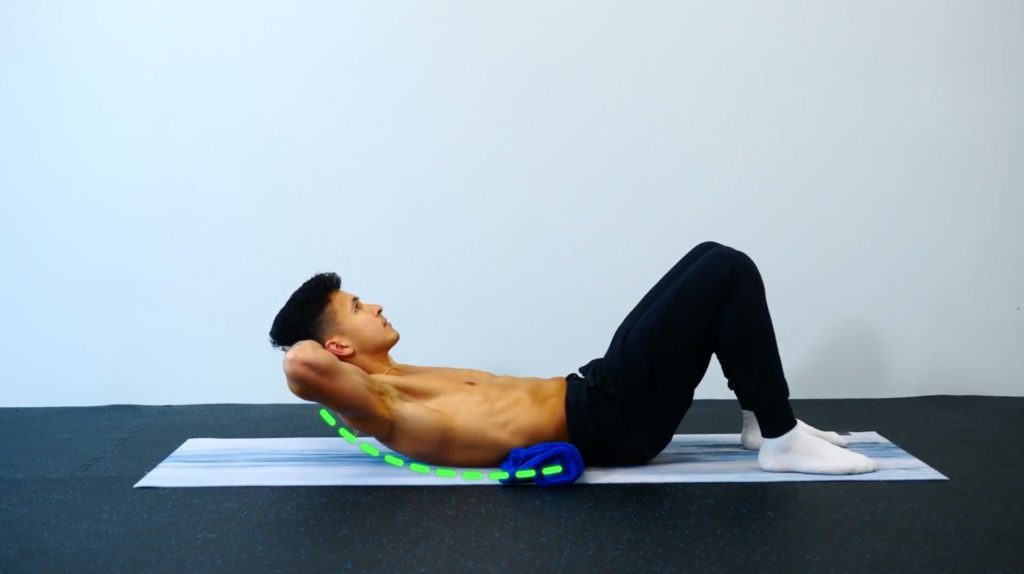
Note: avoid yanking your neck as you come up and using momentum. Also, given the role of the upper abs, you actually don't need to go all the way up as you contract the abs as that'll just work more of the hip flexors.
Ultimately, take it slow and feel the upper abs working. To progress these, as you get stronger, place your arms straight over your head. And add weight using a bottle or backpack once that becomes too easy.
Obliques
Before we dive into how to best perform the full at-home abs workout, we're going to complete it by covering the last region: the obliques. These muscles are best trained with exercises that rotate the torso.
Our "at-home-friendly" move of choice to round off your six-pack development is a well-known exercise, the Russian Twists. The problem with this popular move, however, is they're often performed in a way that makes the exercise far less effective at working the obliques. To avoid this, it starts with a proper setup:
- Sit on your butt with your knees bent and feet on the floor; sitting too far upright will make the exercise easier, but less effective, so try to angle your back to about a 45-degree angle
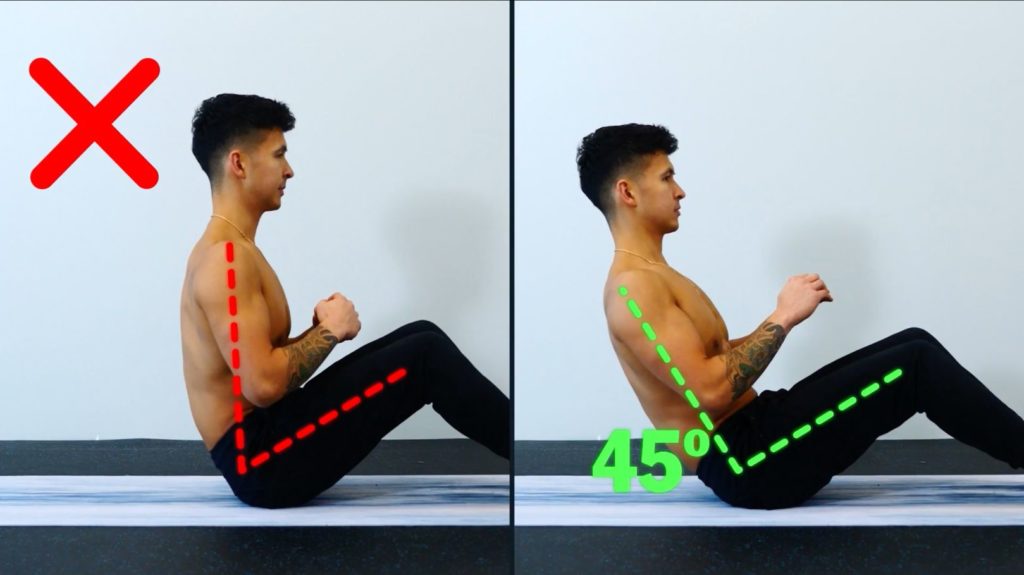
- From here, the goal is to touch either side of the ground. But note that your hands aren't what activates your obliques - so avoid just reaching with your arms and not rotating with your torso. Let your shoulders dictate your rotation.
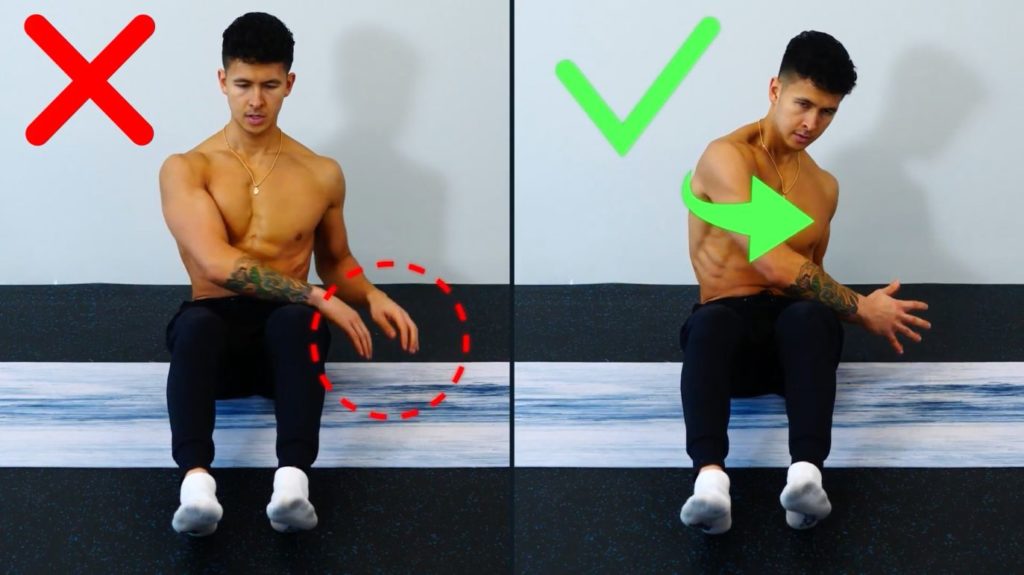
That means you should focus on trying to line up your shoulder with your leg when you reach each side. For example, your left shoulder lining up with your left leg when you twist to the right. Doing this will force you to rotate your torso and engage your obliques.
To progress this move over time, you can raise your feet off the ground slightly. And try to reach further and further out with your arms. Doing these will force your obliques to work harder to stabilize your body.
How To Do The Full "At Home" Abs Workout
Now, let’s get into how to perform the full workout for the best results.
You’re going to perform this workout as a circuit. You'll move from one exercise to the next with just 15 seconds of rest between each to catch your breath. After you run through it once, you’ll rest for 2 minutes, and then repeat it a total of 3 times.
As for reps, for the walkouts, aim for 5-10 reps. For the reverse crunches and crunches, aim for anywhere between 10-25 reps. For the Russian twists, you’ll do as many as you can within 1 minute.
The Complete Bodyweight Ab Workout
Walkouts: 5-10 reps
Reverse Crunches: 10-25 reps
Crunches: 10-25 reps
Russian Twists: 1 minute
Repeat x3
You can do the workout 2-3 times a week. But as you get stronger, it’s important that you try to increase your reps over time while applying the progressions mentioned earlier. This will simulate the effect of adding more weight to help your abs grow and pop more.
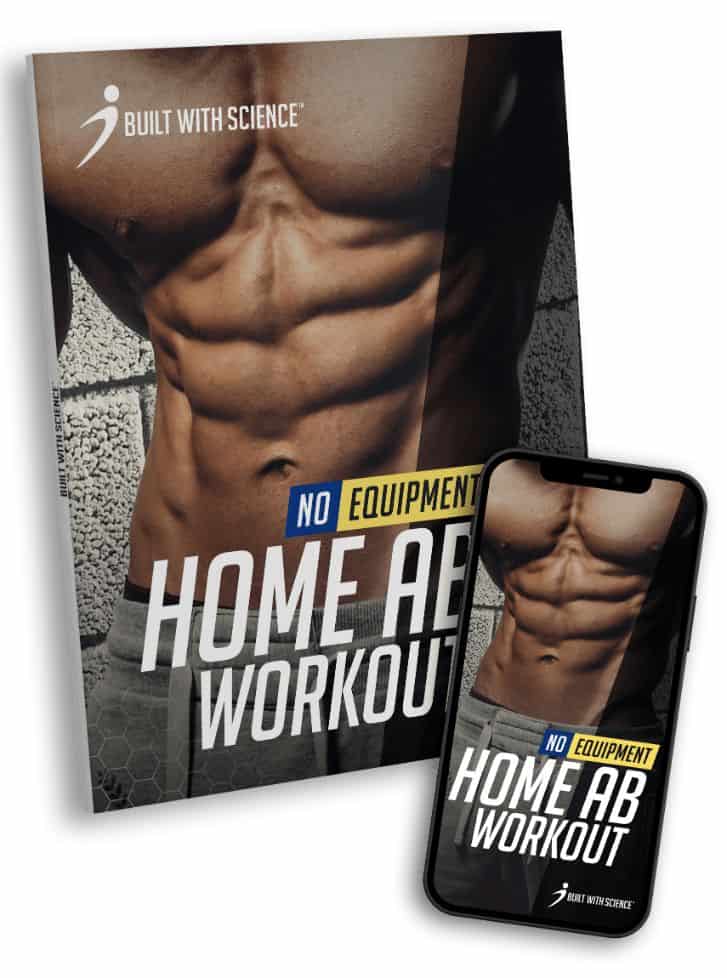
And as mentioned earlier, for a free downloadable PDF of the full workout with step by step guidance:
Click the button below to download your FREE abs workout routine:
↓
Takeaway
But, keep in mind, guys, that no matter how hard you train your abs either with this home workout (or other abs routines), you're not going to get the six packs you're after without a solid diet plan in place.
That's the secret behind the incredible transformations thousands of our members get using my Built With Science programs. Within each program, you’re shown exactly how to train and how to eat to lose fat and build muscle. To start today:
Click the button below to take my analysis quiz to discover the best program for you:
↓
Anyways, thanks for sticking right till the end! Feel free to check out my older articles too:

